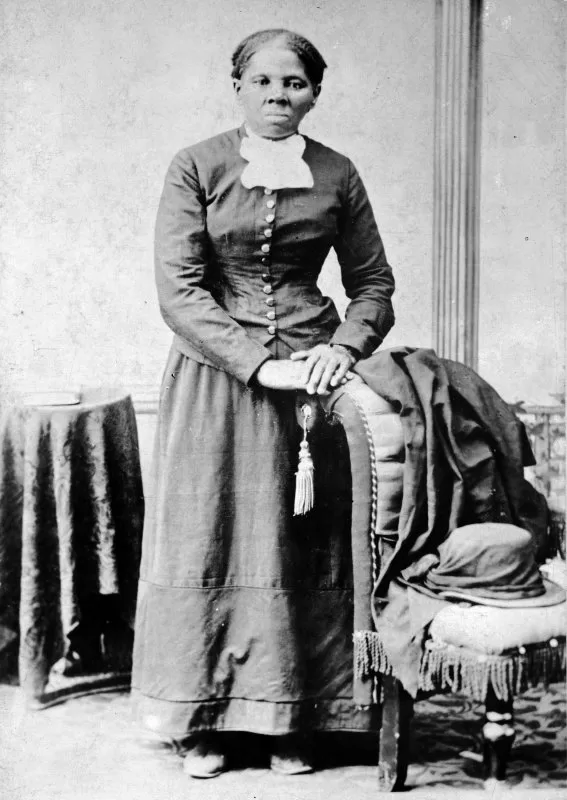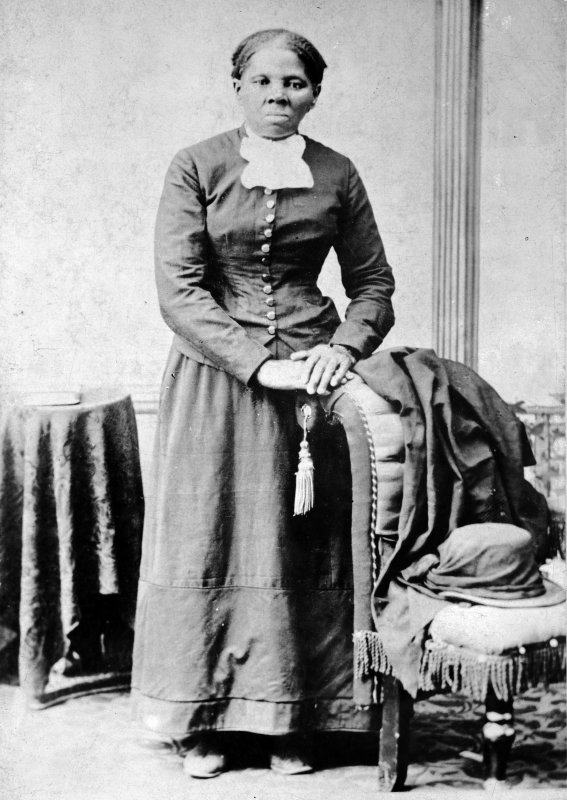1 of 2 | Portrait of Harriet Tubman, full-length, with her hands resting on the back of a chair. Photograph taken between 1860-1875. On Monday, Tubman was posthumously awarded the rank of brigadier general of the Maryland National Guard. File Photo by Library of Congress
Nov. 12 (UPI) — Harriet Tubman, a former slave and revered abolitionist who fought as a Union spy during the American Civil War, was posthumously awarded the rank of brigadier general of the Maryland National Guard on Monday in recognition of her service.
During a ceremony marking Veterans Day at the Harriet Tubman Underground Railroad State Park in Maryland, military and government officials gathered to honor a woman Maryland Adjutant General Janeen Birckhead said should “be revered, always, for risking her life and her own freedom in the cause of justice for the enslaved.”
“As a military commander, I am proud we remember her today for her valor,” Birckhead said.
Born into slavery in 1822 in Maryland’s Dorchester County, Tubman eventually escaped in 1849 to Philadelphia, where she lived as a free woman.
Upon gaining her freedom, she immediately returned to Maryland to rescue her family.
She made some 11 missions from Maryland to St. Catharines, Ontario, Canada, between 1850 and 1860 in what is now known as the Underground Railroad, according to the National Women’s History Museum.
Through her efforts, her network rescued around 70 people from slavery.
Then when the American Civil War broke out in April of 1861, Tubman enlisted in the Union Army as a nurse, but then became a scout and leading a group of spies from 1863. She conducted raides that freed hundreds of slaves, the museum said.
Maryland Gov. Wes Moore described Tubman at the ceremony, attended by several of her descendants, as not only one of the greatest Marylanders in history but one of the United States’ greatest patriots.
He said no one would have judged Tubman if she had decided, upon gaining her freedom, to spend the rest of her days as a private citizen in the north or coordinate the abolitionist movement from Philadelphia without ever traveling south again. However, she knew “that in order to do the work that meant that she had to go into the lion’s den,” he said.
“She knew that leadership means you have to be willing to do what you are asking what others to do,” Moore said, adding that “she raised her hand to join the Union Army as a soldier and a spy because she believed you cannot just rail about the system being flawed, you actually have to be the one to go in and work to change it.”
Following Moore’s speech, the official order appointing Tubman to the rank of brigadier general was read and Birckhead placed the symbolic rank upon Ernestine “Tina” Martin Wyatt, Tubman’s great-great-great-grandniece.
Wyatt called Tubman a “selfless person” who thought only of others.
“Keep fighting for democracy wherever it presents itself,” she told those gathered.

